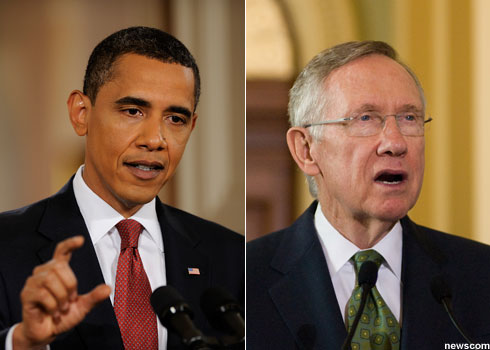Last week, at a meeting between Senate health care principals and Obama administration officials, the White House basically told Senate Majority Leader Harry Reid it would be leaving most of the big legislative decisions on reform to him. This week, Reid is faced with an onslaught from pressure groups, including labor and the grassroots, demanding that he include the public option in the health care bill he brings to the floor.
In a sign that Reid may be willing to acquiesce, if only the White House helps him whip the caucus into shape, a top Capitol Hill aide tells me “Right now, we don’t have 60 Democratic Senators in lockstep with one another on the public option…we need the president to send a strong signal to those in the room negotiating the merger, that the public option is, really, what he wants in the final bill.”
This weekend, White House adviser Valerie Jarrett reiterated the White House’s non-committal stance on the public option. The aide’s plea for more White House involvement suggests non-committal statements like Jarrett’s are insufficient to save the day for public option in the Senate’s bill.
In the past, Obama has told senators that he simply wants the House and Senate to pass their bills, leaving all the hard decisions to be sorted out in a conference committee between the two chambers. But the demand for the public option, from both party liberals and outside reformers, has only intensified in recent weeks, and more than ever it seems as if both White House and Senate officials have waken up to how much is at stake if the public option doesn’t survive.
If Reid does not include a public option in the Senate’s health care bill, the measure will face a stiff climb on the Senate floor, subject, by the agreement of all senators, to a 60 vote requirement. It’s likely that if the public option doesn’t come to the Senate floor now, there will be only one more chance to incorporate it in the bill the President signs–that is, when the House and Senate bills are weaved together in conference. That’s, potentially, a very dangerous game. But there are also at least some signs that Reid is preparing for that contingency.










